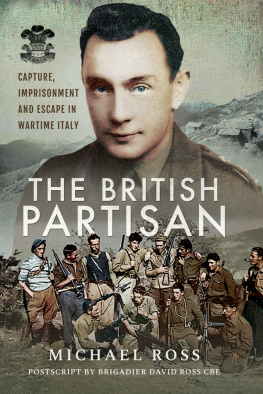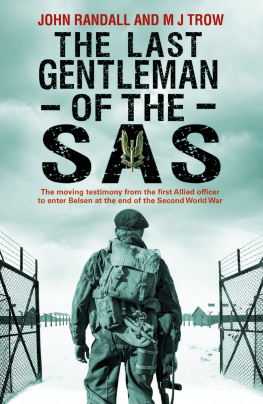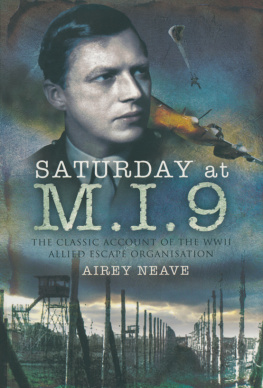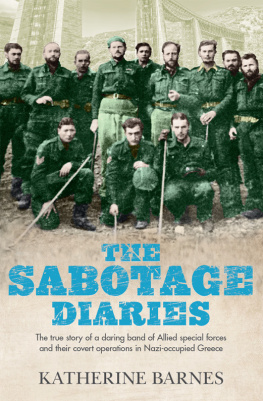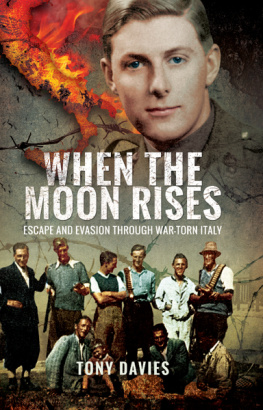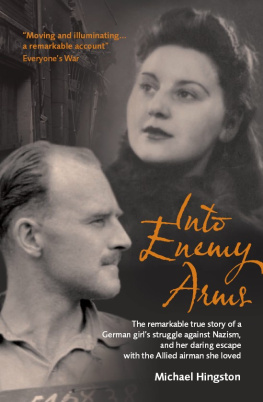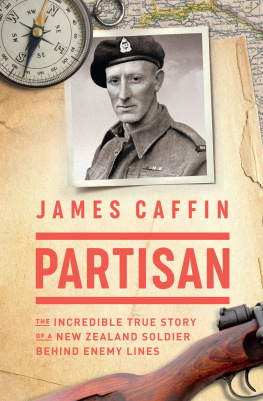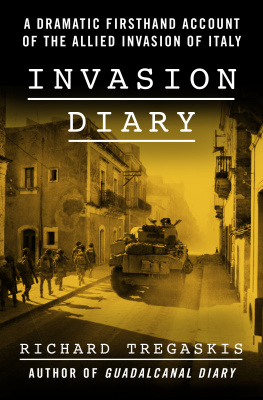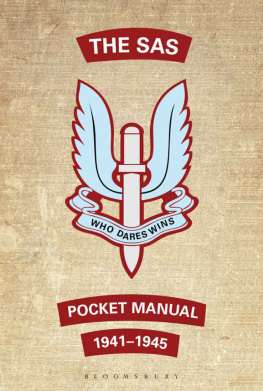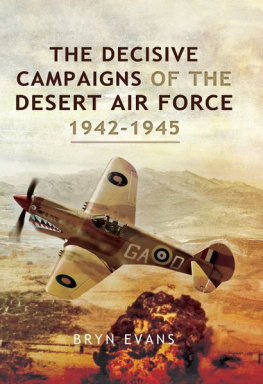The British Partisan
The British Partisan
Capture, Imprisonment and Escape in Wartime Italy
Michael Ross
Pen & Sword
MILITARY
First published in Great Britain in 1997 by Minerva Press as
From Liguria with Love Capture, Imprisonment and Escape in
Wartime Italy
Republished in this format in 2019 by
Pen & Sword Military
An imprint of
Pen & Sword Books Ltd
Yorkshire Philadelphia
Copyright The Estate of Michael Ross 2019
ISBN 978 1 52675 035 8
eISBN 978 1 52675 036 5
Mobi ISBN 978 1 52675 037 2
The right of Michael Ross to be identified as Author of this work has been
asserted by him in accordance with the Copyright, Designs and Patents
Act 1988.
A CIP catalogue record for this book is
available from the British Library.
All rights reserved. No part of this book may be reproduced or transmitted
in any form or by any means, electronic or mechanical including
photocopying, recording or by any information storage and retrieval
system, without permission from the Publisher in writing.
Pen & Sword Books Limited incorporates the imprints of Atlas,
Archaeology, Aviation, Discovery, Family History, Fiction, History,
Maritime, Military, Military Classics, Politics, Select, Transport, True
Crime, Air World, Frontline Publishing, Leo Cooper, Remember When,
Seaforth Publishing, The Praetorian Press, Wharncliffe Local History,
Wharncliffe Transport, Wharncliffe True Crime and White Owl.
For a complete list of Pen & Sword titles please contact
PEN & SWORD BOOKS LIMITED 47
Church Street, Barnsley, South Yorkshire, S70 2AS, England
E-mail:
Website: www.pen-and-sword.co.uk
Or
PEN AND SWORD BOOKS
1950 Lawrence Rd, Havertown, PA 19083, USA
E-mail:
Website: www.penandswordbooks.com
To Giovanna, David, Stephen and Alessandra
List of Maps
1.North Africa: Western Desert Campaign January 1942.
2.The three PoW camps in Italy where Michael Ross was held.
3.Escape route of Michael Ross and Jimmy Day, 716 May 1943.
4.Escape route of Michael Ross and George Bell, 9 September3 November 1943.
5.Partisan actions and escape routes on the Italian Riviera, December 1943March 1945.
List of Illustrations
1.Michaels family is informed that he has been captured. ( Ross Family Archive )
2.MoD letter to Michaels mother concerning her sons kit following capture. ( Ross Family Archive )
3.PoW Food Coupon for purchases from the camp shop ( Ross Family Archive )
4.Fontanellato Prison Camp diagram. ( The Estate of Ian English )
5.A letter to Michael from his mother on special PoW forms. The letter was redacted in parts by the MoD on security grounds. ( Ross Family Archive )
6.Plaque outside Fontanellato Camp gate commemorating the PoWs and the Italians who helped them following the Italian Armistice.
7.Villa Llo Di Mare, painted by the author in 1996. ( Ross Family Archive )
8.FM Alexanders letter of thanks to Beppe. ( Ross Family Archive )
Preface
Do the work thats nearest,
Though its dull at whiles,
Helping, when we meet them,
Lame dogs over stiles.
Charles Kingsley
I t is now many years since the Second World War and the events which I describe in the following pages. Over the course of time, some of my memories have faded beyond recall, but the ones recounted here, written in the immediate post-war period, remain vivid and, I am confident, form a true record of my experiences during that fateful period.
My original purpose was to provide my children with an account of my personal involvement in those events. Now, much later, having combined the writings into a single book helped by my daughter Alessandras painstaking checking of the scripts I hope that others may read it too. I should like to think that, in its own small way, it might contribute to a better understanding and appreciation of peoples of other lands.
Like me, there must be many who have found themselves lame dogs at some time in their lives, dependent on the compassion of others. I consider myself fortunate indeed to have met so many people ready to help me over the stiles when I came to them.
Throughout these writings I have used the real names of those involved. In two instances only, Palmero and Bruno, I thought it wise to use fictitious ones. But there were countless others, strangers whose names I shall never know, who gave help and protection with no thought of reward and often at grave personal risk.
Strange though it may seem, my wartime experiences have left me with an unshakeable faith in the fundamental goodness of mankind.
Michael Ross, London, 1997.
Introduction
T he war in Africa was in its second year. Following Mussolinis declaration of war in 1940, General Wavells British forces based in Egypt and the Sudan attacked and overran the Italian colonies of Abyssinia and Eritria and advanced well into Libya, Mussolinis last stronghold. But the promising Libyan operation ground to a halt when Wavell was required to divert troops to Greece and Crete in an ill-fated attempt to defend them against German forces advancing from central Europe. Then, to compound Wavells problems, the Germans under General Rommel landed in North Africa for the first time. The combined German-Italian armies forced the British Eighth Army to relinquish its gains in Libya and retreat back to Egypt.
The Axis advance was halted, enabling reinforcements of men and materials to be rushed to Egypt. I was among them, part of a contingent of five other officers and two hundred men of the Welch Regiment. We had been sent to make good the losses suffered by our 1st Welch Battalion in Crete.
Like most of the others, I was in my early twenties and fresh from the training camps at home, glad of a reprieve from endless mock battles and exercises. Months of intensive training had hardened us and rendered us, supposedly, impatient for real action.
After arrival we passed the first few weeks savouring the luxury of social life in the safety of the Citadel, an ancient fortress overlooking the metropolis of Cairo, before being plunged into the rigours and tedium of desert training. Meanwhile, there was a change of command; General Wavell had gone to India to be replaced by General Auchinleck, who within two months had launched us into a new Libyan offensive.

